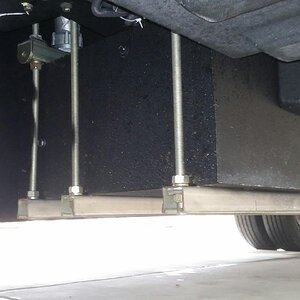Flyfisher57
RVF Newbee
- Joined
- Apr 20, 2021
- Messages
- 4
I am looking to purchase a Toyota Tacoma with the towing package. Not using correct terminology, but its dry weight is roughly over 4400lbs. I plan on taking it up and around
and around western North Carolina. Is this truck capable of pulliing this double ale RV without difficulty up steep grades and going down? Big learning curve here. Thanks!
and around western North Carolina. Is this truck capable of pulliing this double ale RV without difficulty up steep grades and going down? Big learning curve here. Thanks!











